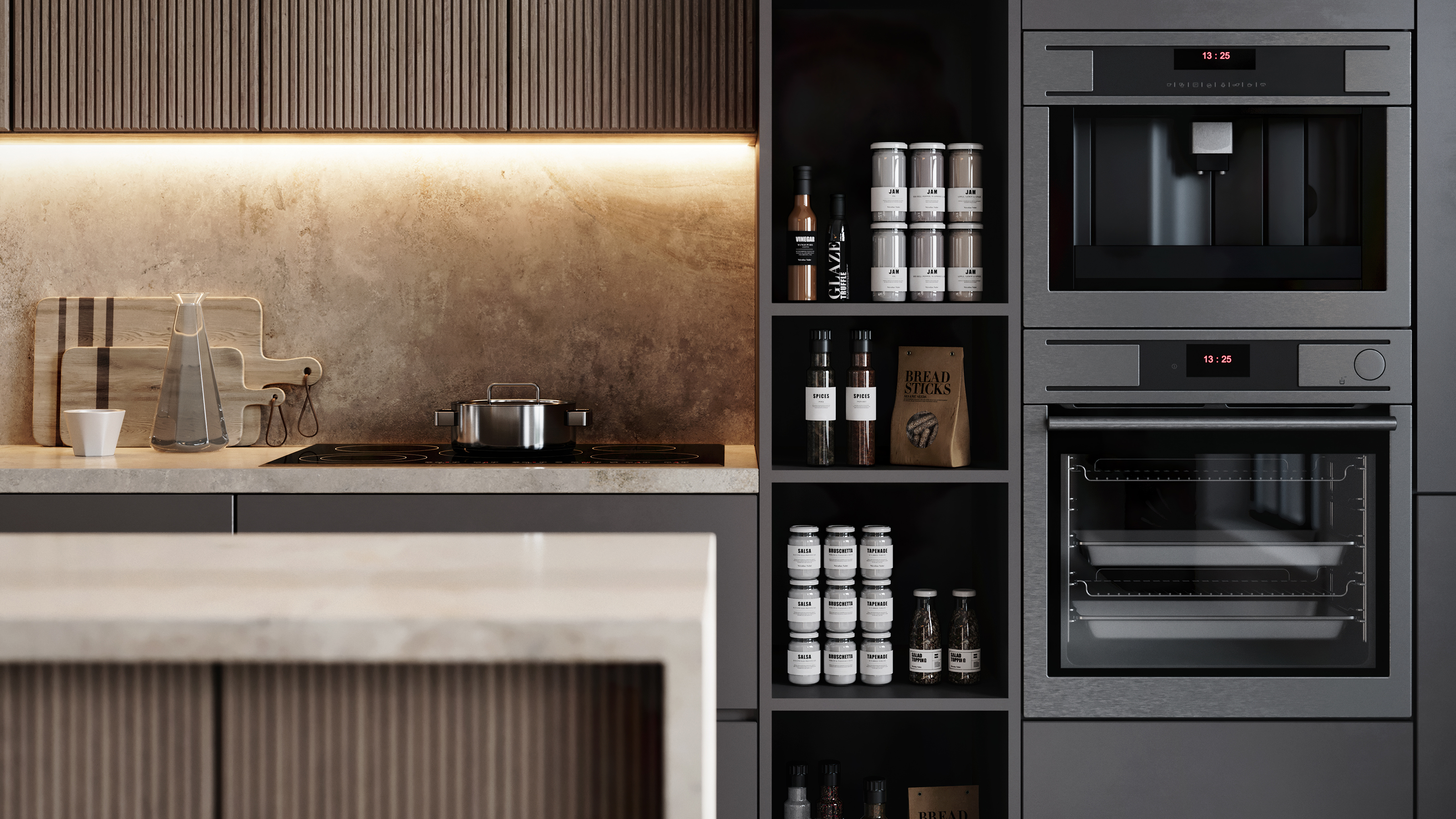Dirty ovens cause 1 in 5 house fires: this is what to do if yours bursts into flames
Dirty ovens are often the destructive culprit, but most homeowners still only clean their cooking appliances twice a year.

Christina Chrysostomou

Dirty ovens tend to creep up on us. Chucking dinner in the oven after a long day at work is the norm, and the number of people who check the cleanliness of their oven before using it are few and far between. Because of this, many of us are at risk of a house fire by continuing to use our cooking appliances when they haven't been properly cleaned.
The latest figures from the Office of National Statistics reveal that cooking appliances (like ovens) are a leading cause of house fires, responsible for one in five blazes in homes last year. Despite this, most of us are still cleaning our ovens just twice a year – potentially putting our homes at risk.
Making time to clean your appliances is quite literally a lifesaver. And, by using a good oven cleaner, you can have the job done in no time at all.
How dirty ovens can cause a house fire
'Over time, food and grease stick to the hot plating, grills, and metal trays inside of the oven, and if left, this will burn whenever it's used,' says Rik Hellewell, managing director at oven cleaning specialists Ovenu.
'Continuous cooking with a dirty oven can create carbon-based fumes and excess smoke during cooking is often an indicator of a potential fire hazard,' notes Hellewell. 'It also sours the taste of food, makes the oven less efficient, creates an unpleasant smell that permeates the house, and can be dangerous to health if inhaled.'
What to do if your oven catches fire
If your oven catches fire, Ovenu recommends leaving the door closed, turning the oven off, and letting it cool down. Putting water on the flames could cause oil to splatter and spread the fire further, so avoid doing this. Call emergency services immediately if the fire doesn't subside.
Prevention is far better than cure of course. How often should you be cleaning your best oven then? 'Homeowners and tenants should really be cleaning their oven at least every 12 weeks or as often as twice a month if it gets heavy use.'
Get small space home decor ideas, celeb inspiration, DIY tips and more, straight to your inbox!
Tackling dirty ovens
From the grimey oven racks to that burnt-stained door, and not forgetting the stove top, it's key to keep on top of cleaning an oven before it's too late.
If you're worried about getting your hands dirty, grab some good-quality kitchen cleaning gloves. Alternatively, invest in an oscillating scrubbing brush, like the SonicScrubber – great for if you want to take the hard work out of scouring a dirty oven, or if you have a physical ailment like arthritis.
Fast-acting cleaning products are effective but typically contain corrosive ingredients. If you'd prefer using something a little gentler, baking soda, vinegar, and lemon juice are all budget- and eco-friendly cleaning supplies in disguise!
Can self-cleaning ovens cause a fire?
If you're wondering, 'what is a pyrolytic oven?' – chances are yours isn't self-cleaning. But if you have invested in this brand new technology, then listen up, because you still need to use caution and practice good hygiene in the kitchen.
'The self-cleaning feature can present a fire hazard,' says Oleg Chudnovski, founder and CEO at Fix Appliances CA. 'Even if you’ve removed all the larger food particles, you’ll likely have grease or cooking oil splatters and spills to burn off.'
The incredibly high heat mixed with missed spills can lead to problems. 'With an inside temperature exceeding 500°C/932°F, and a flashpoint (the temperature at which items can self-combust without an ignition source) between 750 to 815°F (or between 400 to 435°C) your leftover pepperoni grease can start on fire,' adds Chudnovski.

Formerly deputy editor of Real Homes magazine, Ellen has been lucky enough to spend most of her working life speaking to real people and writing about real homes, from extended Victorian terraces to modest apartments. She's recently bought her own home and has a special interest in sustainable living and clever storage.
- Christina ChrysostomouFormer acting head ecommerce editor